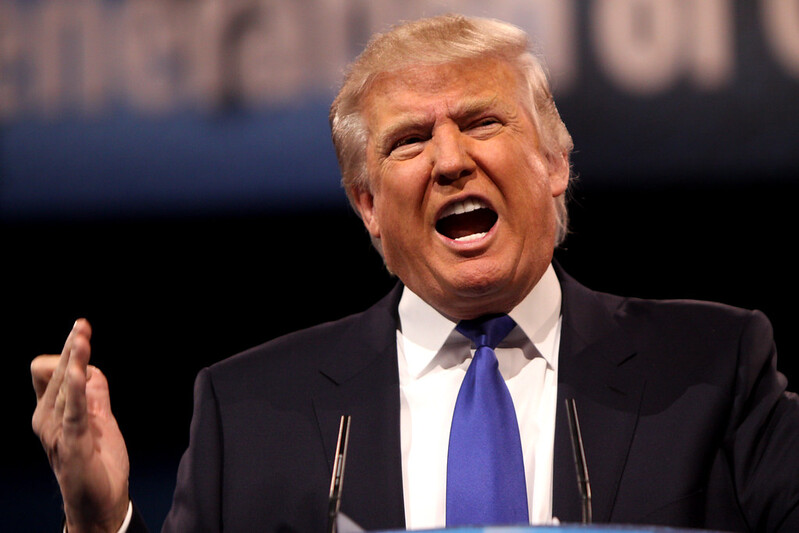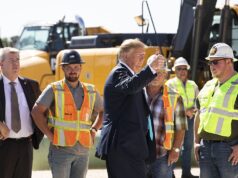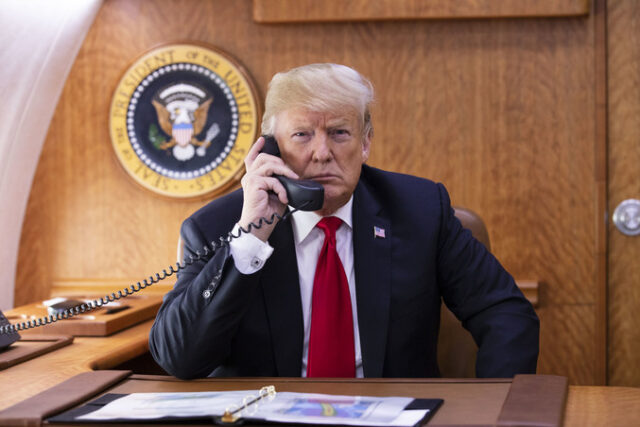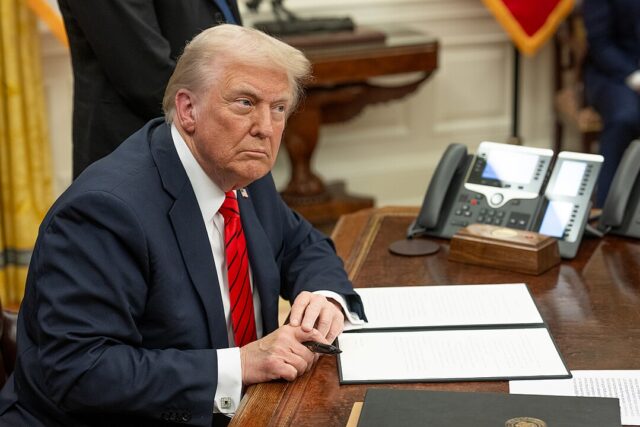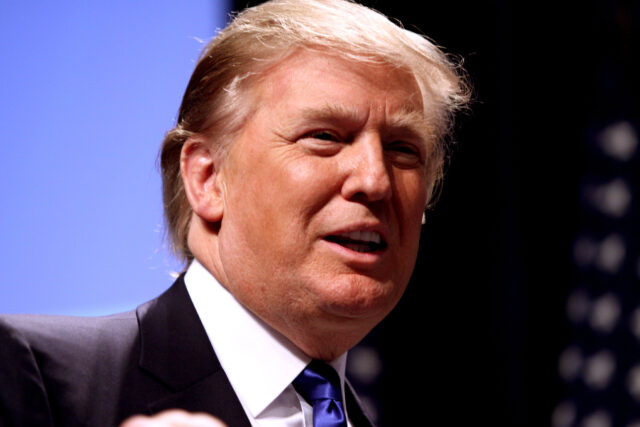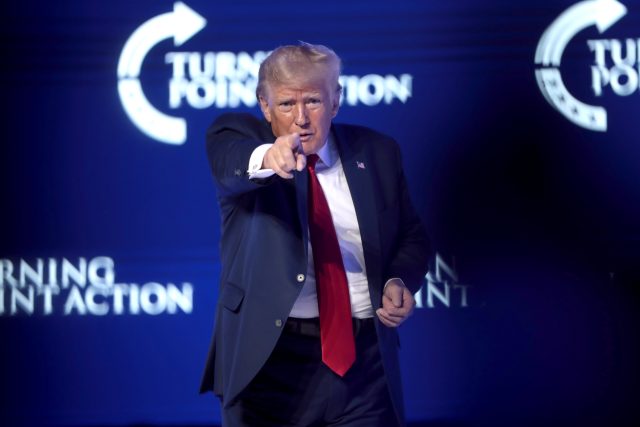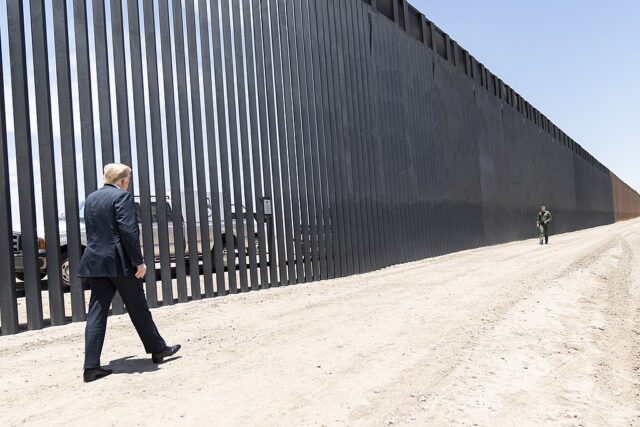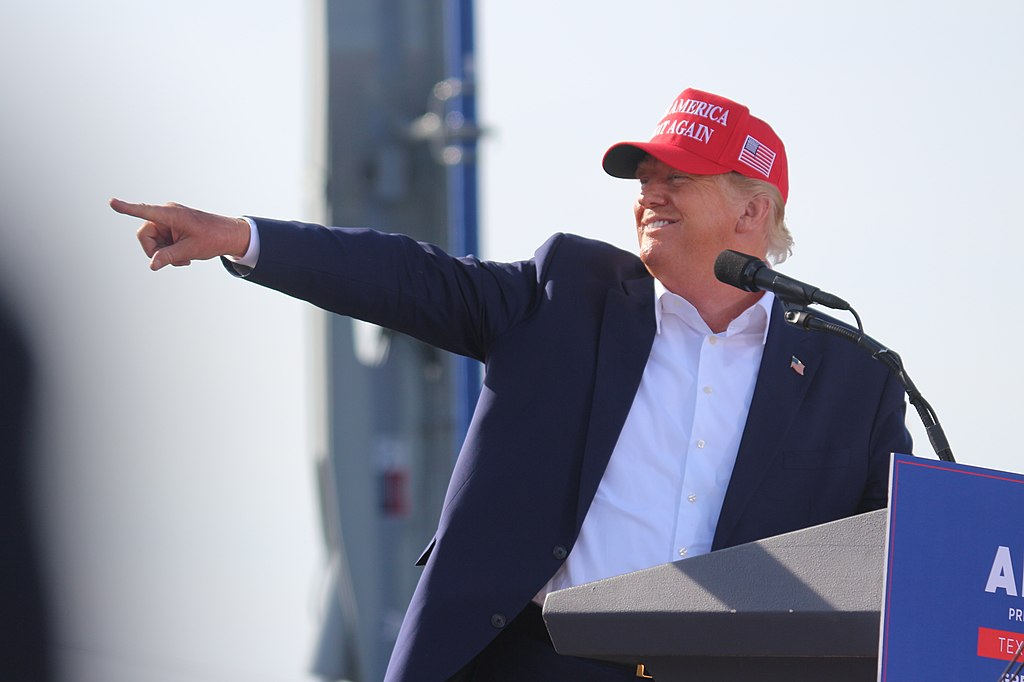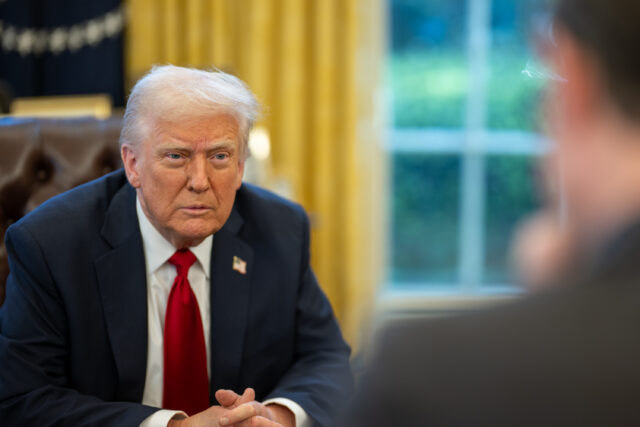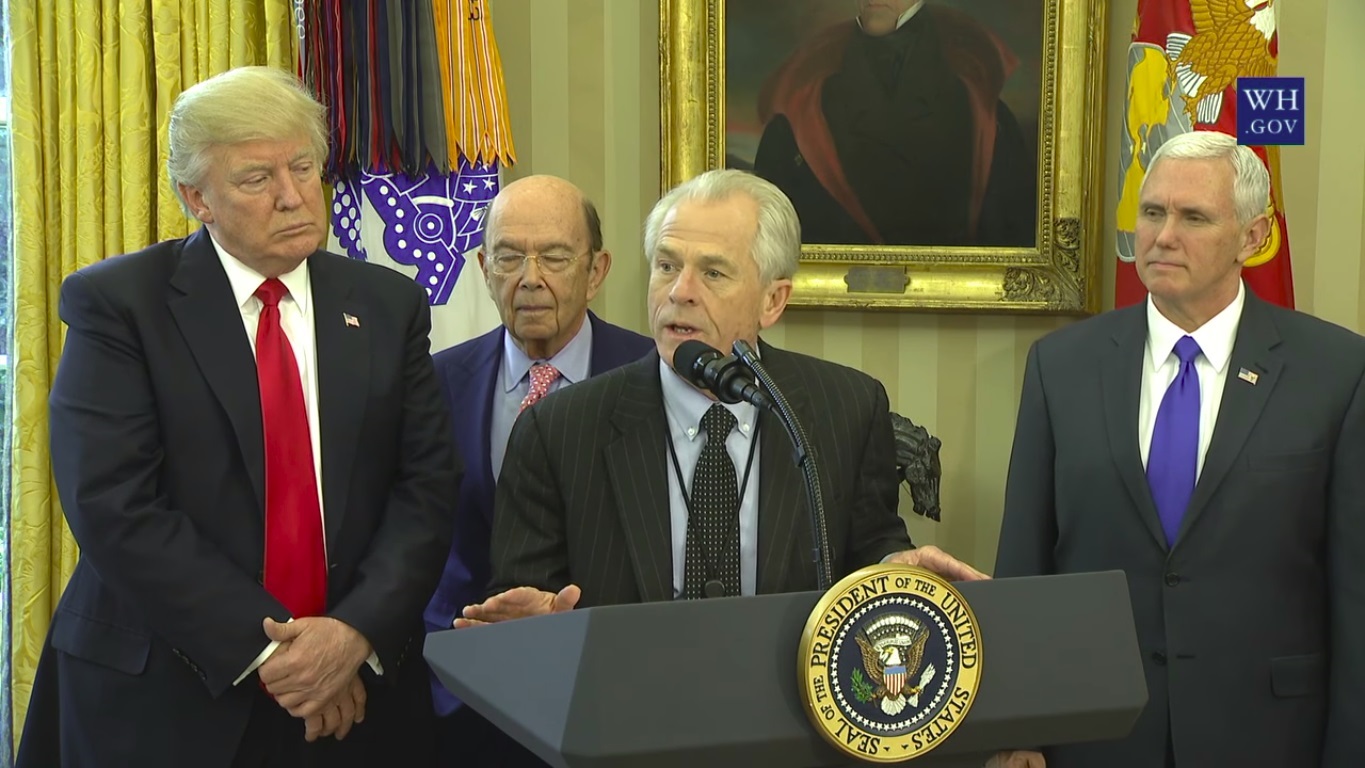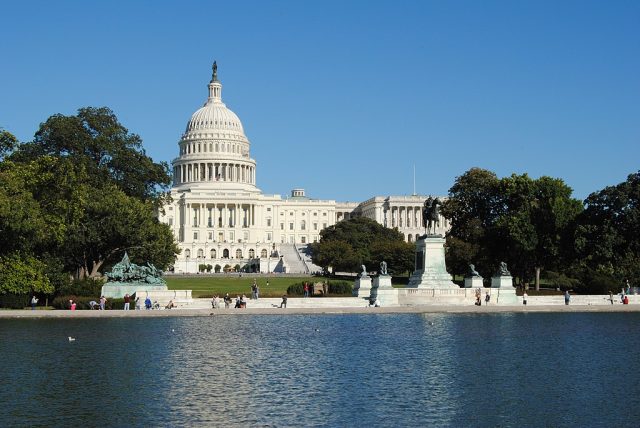President Donald Trump announced he is scheduled to meet with Russ Vought, director of the Office of Management and Budget, to discuss which parts of the government he recommends cutting amid the Schumer Shutdown.
“I have a meeting today with Russ Vought, he of PROJECT 2025 Fame, to determine which of the many Democrat Agencies, most of which are a political SCAM, he recommends to be cut, and whether or not those cuts will be temporary or permanent,” the president wrote on Truth Social Thursday morning.
“I can’t believe the Radical Left Democrats gave me this unprecedented opportunity,” he continued. “They are not stupid people, so maybe this is their way of wanting to, quietly and quickly, MAKE AMERICA GREAT AGAIN!”
Trump Warns of Necessary Cuts as Shutdown Looms
President Trump said Tuesday that while he would prefer to avoid a government shutdown, it could provide an opportunity to continue his mission of restoring fiscal sanity in Washington and eliminating wasteful spending.
“We don’t want it to shut down because we have the greatest economy and investment environment ever,” Trump said from the Oval Office. “We’ve got $17 trillion being invested in this country right now. So the last person who wants a shutdown is us.”
“But with that being said,” he continued, “a shutdown allows us to make reforms that are otherwise impossible — cutting bloated programs, trimming the fat, and removing layers of bureaucracy that serve no one but Washington insiders.”
A government funding lapse doesn’t give the president new powers, but it does shift discretion to the White House and the Office of Management and Budget (OMB) to determine which programs must continue and which can pause. The Antideficiency Act requires agencies to halt nonessential spending when Congress fails to pass appropriations, while preserving core constitutional and national security functions.
Trump praised OMB Director Russell Vought for his leadership on budget discipline. “Russell Vought has been very popular lately because he knows how to bring the budget under control in ways Congress never would,” Trump said. “Shutdowns have risk for Democrats too — because during them, we can finally cut things they love to spend on, things that waste taxpayer dollars, and no one can reverse it.”
Later that day, Trump reiterated that he wants a deal but will not ignore the chance to protect taxpayers if Democrats refuse to negotiate responsibly. “A lot of good can come from this,” he said. “We can finally weed out overspending and save Americans’ hard-earned money.”
Vought, in a memo Tuesday evening, declared that a shutdown appeared unavoidable because of what he called “Democrats’ insane policy demands, including $1 trillion in new spending.” He told federal employees to prepare for an orderly pause in operations.
Vice President JD Vance: Focus on Essential Services
On Wednesday, Vice President JD Vance joined the White House press briefing to emphasize that while the administration expects the shutdown to be brief, some workforce reductions are unavoidable.
“We’re going to have to make things work,” Vance said. “That means prioritizing essential functions and, unfortunately, letting go of some nonessential positions. Our goal is to make sure the American people feel as little pain as possible.”
Vance pushed back on criticism that the administration is using the shutdown for partisan targeting: “We’re not going after agencies because of politics. We’re trying to keep critical services running, even when Democrats refuse to fund the government responsibly.”
The Drive to Make Government Leaner
These measures are part of Trump’s larger effort to make the federal government lean, accountable, and responsive to voters — not entrenched bureaucrats. In January, the administration offered voluntary buyouts for employees ready to step aside and avoid deeper cuts. Those were followed by reduction-in-force (RIF) plans across agencies with low performance or duplication of services.
In his March address to Congress, Trump pledged to “reclaim power from unaccountable bureaucracy and return it to the American people.”
“Any federal bureaucrat who resists this change will be removed from office,” Trump said. “We’re draining the swamp. The days of rule by unelected bureaucrats are over.”
DOGE and the Push Against Waste
Central to this reform is the Department of Government Efficiency (DOGE), created to root out waste, fraud, and abuse. Tech entrepreneur Elon Musk was tapped to lead DOGE’s oversight efforts — leveraging innovation and private-sector discipline to expose costly, ineffective programs.
DOGE has flagged millions in questionable foreign aid and pet projects that have little to do with serving Americans, including:
- $25 million for “biodiversity and socially responsible behavior” in Colombia
- $40 million to “improve the social and economic inclusion of sedentary migrants”
- $42 million for “social and behavior change” initiatives in Uganda
- $10 million for circumcision programs in Mozambique
“Why are we paying for these things abroad when our own border is wide open and Americans are struggling?” Trump asked at CPAC, highlighting the findings.


